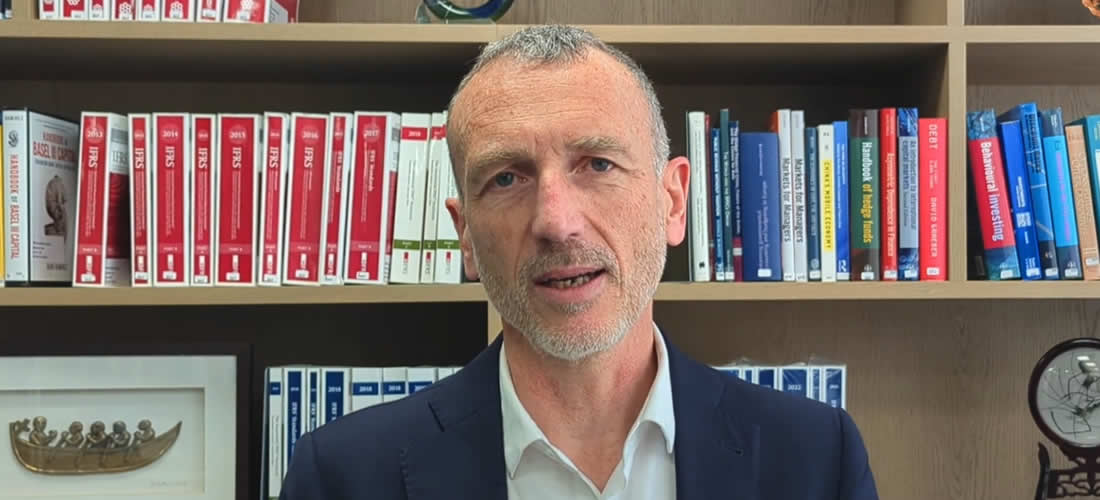The International Sustainability Standards Board (ISSB), established at COP26 to develop a comprehensive global baseline of sustainability disclosures for the capital markets, today launched a consultation on its first two proposed standards. One sets out general sustainability-related disclosure requirements and the other specifies climate-related disclosure requirements.
The proposals―exposure drafts—build upon the recommendations of the Task Force on Climate-Related Financial Disclosures (TCFD) and incorporate industry-based disclosure requirements derived from SASB Standards.
When the ISSB issues the final requirements, they will form a comprehensive global baseline of sustainability disclosures designed to meet the information needs of investors in assessing enterprise value. The ISSB is working closely with other international organisations and jurisdictions to support the inclusion of the global baseline into jurisdictional requirements.
The ISSB is seeking feedback on the proposals over a 120-day consultation period closing on 29 July 2022. It will review feedback on the proposals in the second half of 2022 and aims to issue the new Standards by the end of the year, subject to the feedback.
The proposals have been developed in response to requests from G20 leaders, the International Organization of Securities Commissions (IOSCO) and others for enhanced information from companies on sustainability-related risks and opportunities. The proposals set out requirements for the disclosure of material information about a company’s significant sustainability-related risks and opportunities that is necessary for investors to assess a company’s enterprise value.
Later this year, the ISSB will consult on its standard-setting priorities. This consultation will include seeking feedback on the sustainability-related information needs of investors when assessing enterprise value and on further development of industry-based requirements, building on SASB Standards, which address a broad range of sustainability matters. Also today, the ISSB has set out its plan for how its work will build on the SASB Standards and industry-based standard-setting processes.
Emmanuel Faber, Chair of the ISSB, said:
Rarely do governments, policymakers and the private sector align behind a common cause. However, all agree on the importance of high-quality, globally comparable sustainability information for the capital markets. These proposals define what information to disclose, and where and how to disclose it. Now is the time to get involved and comment on the proposals.
Ashley Alder, Chairman of the IOSCO Board, said:
IOSCO welcomes the publication of the ISSB’s two proposed IFRS Sustainability Disclosure Standards. We will review the proposals, with the objective to endorse them for use by our member jurisdictions. Endorsement by IOSCO can pave the way for adoption of the Standards around the world, delivering much-needed consistency and comparability in sustainability-related information to the capital markets.
Mary Schapiro, Head of the TCFD Secretariat, said:
By building on the TCFD’s framework, the ISSB’s climate proposals will create further consistency, comparability and reliability across climate disclosure so investors can make more informed financial decisions. I welcome and support the ISSB’s work, which will bring further transparency on the financial impacts of climate change.
The ISSB’s proposals build on the work of the Climate Disclosure Standards Board, the International Accounting Standards Board, the Value Reporting Foundation (which houses Integrated Reporting and SASB Standards), the TCFD and the World Economic Forum.
Development of IFRS Sustainability Disclosure Standards follows an inclusive and transparent due process, consistent with that used to develop IFRS Accounting Standards. As required by the IFRS Foundation’s Constitution, the IFRS Foundation Trustees’ Due Process Oversight Committee has overseen the decision by the ISSB Chair and Vice-Chair to publish these exposure drafts before the ISSB is quorate.
IFRS Sustainability Disclosure Standards are intended to provide a global baseline and to be compatible with jurisdiction-specific requirements, including those intended to meet broader stakeholder information needs. Thus, in addition to commenting on the ISSB’s proposals, stakeholders are encouraged to respond to other relevant public consultations being undertaken by jurisdictions on sustainability reporting.
Taxonomy
Initial proposals for an IFRS Sustainability Disclosure Taxonomy, enabling structured electronic tagging of a company’s sustainability disclosures, will be published shortly.
Webinars
The proposals will be presented in two live webinars on 28 April at 9am and 5pm BST. Information on how to register will shortly be announced.
Access
- Exposure Draft IFRS S1 General Requirements for Disclosure of Sustainability-related Financial Information;
- Exposure Draft IFRS S2 Climate-related Disclosures;
- Snapshot, providing a high-level summary of the of the requirements;
- Document comparing TCFD’s recommendations with Exposure Draft Climate-related Disclosures; and
- Document comparing the Technical Readiness Working Group’s recommendations with the exposure drafts.
Additional information
- [Draft] IFRS S1 General Requirements for Disclosure of Sustainability-related Financial Information sets out the overall requirements for disclosing sustainability-related financial information about all its significant sustainability-related risks and opportunities, to provide the market with a complete set of sustainability-related financial disclosures.
- The [draft] IFRS S1 also provides guidance on how to identify and develop appropriate disclosures about sustainability-related risks and opportunities not addressed by an IFRS Sustainability Disclosure Standard using the disclosure topics in SASB Standards and the CDSB Framework application guidance for water- and biodiversity-related disclosures.
- [Draft] IFRS S2 Climate-related Disclosures sets out the specific requirements for the identification, measurement and disclosure of climate-related financial information.
- Enterprise value is the total value of a company―the market value of its equity and its net debt. Information that could be relevant to the assessment of enterprise value is broader than information reported in the financial statements. It includes information about a company’s impacts and dependencies on people, the planet and the economy when relevant to the assessment of the company’s enterprise value.
- The proposals build on the prototypes prepared by the Technical Readiness Working Group (TRWG). The TRWG was created by the IFRS Foundation Trustees in March 2021 to provide recommendations to the then proposed new board. Access further information on the TRWG’s remit and members.
Source: www.ifrs.org
 En
En